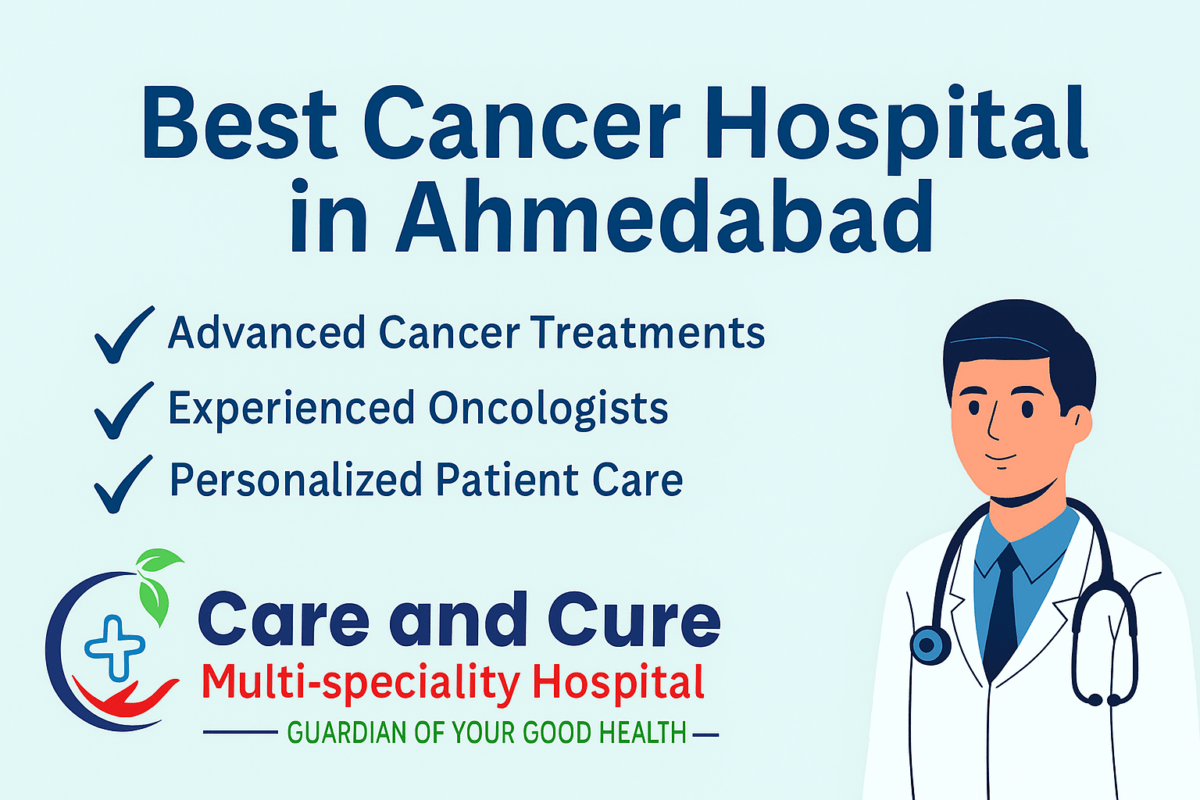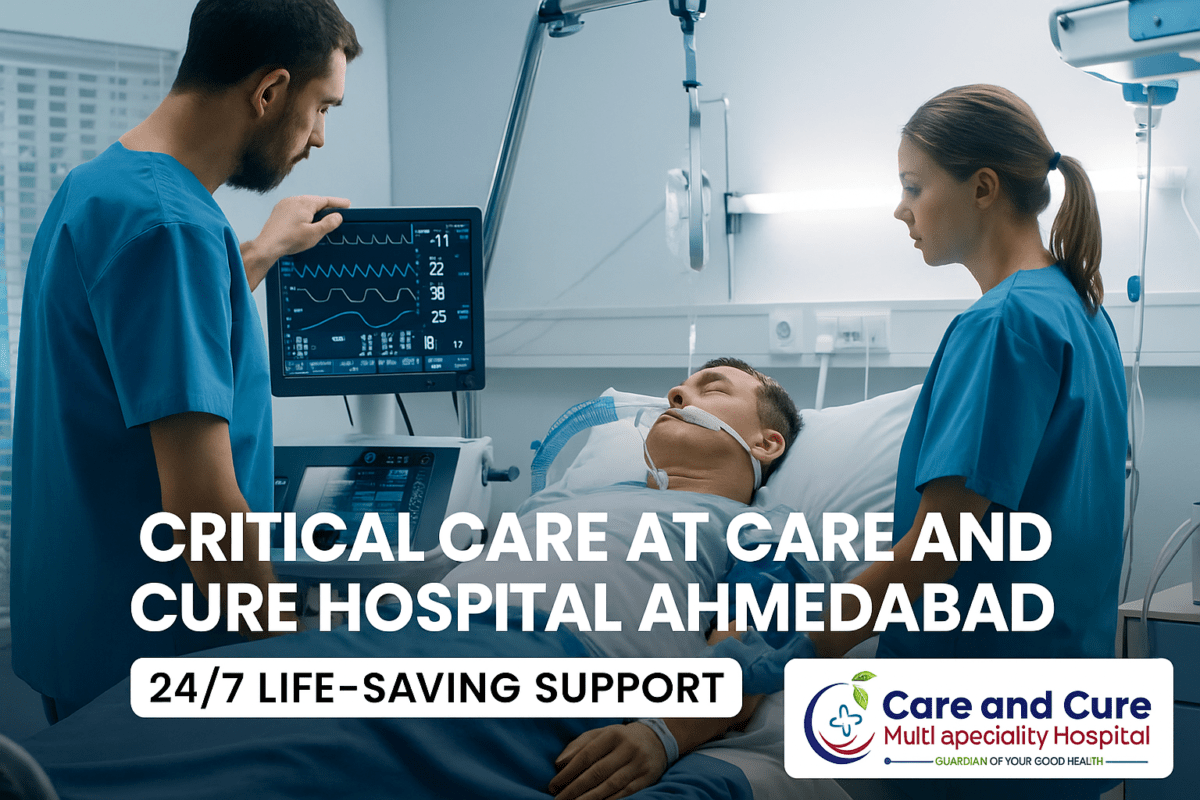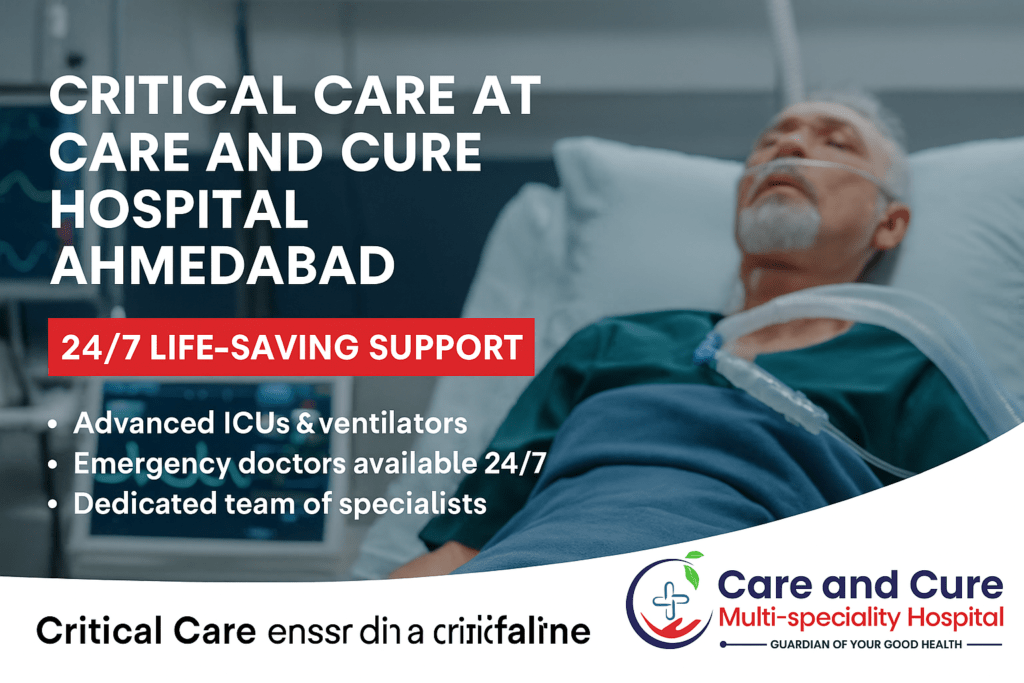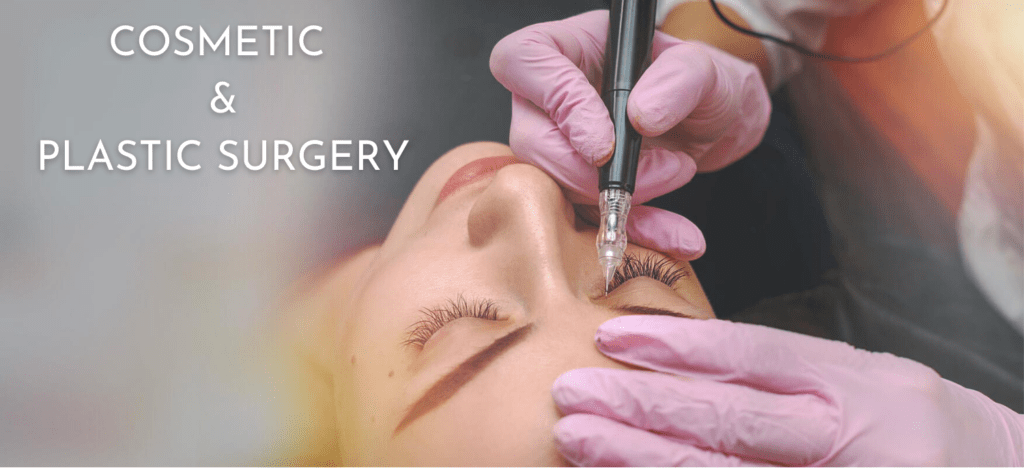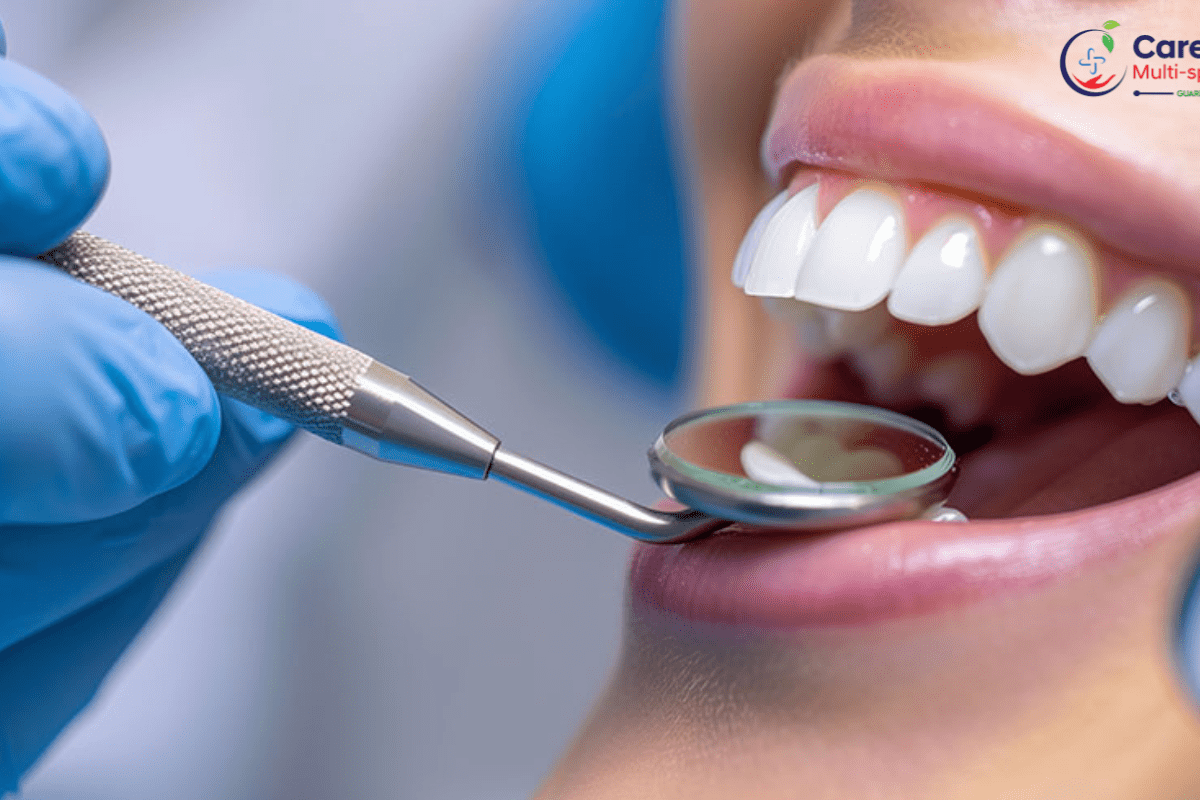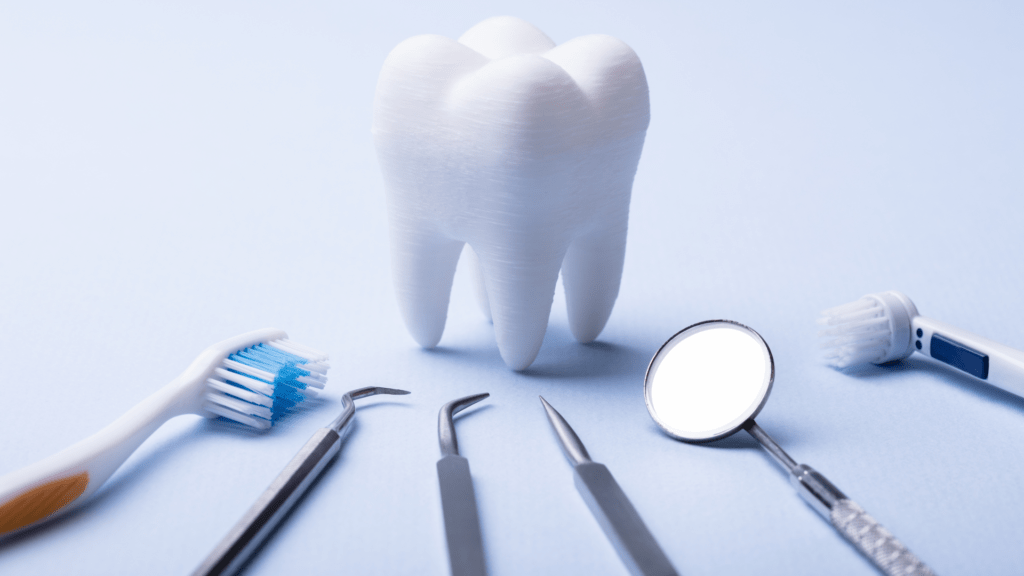Cancer is not just a disease—it’s a journey that demands courage, expert care, and emotional support. When someone is diagnosed, the most crucial decision they make is choosing the best cancer hospital where they can find hope, healing, and trust.
At Care and Cure Multispeciality Hospital Ahmedabad, we understand that every cancer journey is unique. Our hospital stands as one of the best cancer hospitals in Ahmedabad, combining advanced oncology treatments, experienced oncologists, and personalized care for every patient.
This blog explores why Care and Cure is known for its excellence in cancer treatment, the facilities it offers, and how it supports patients through every phase—from diagnosis to recovery.
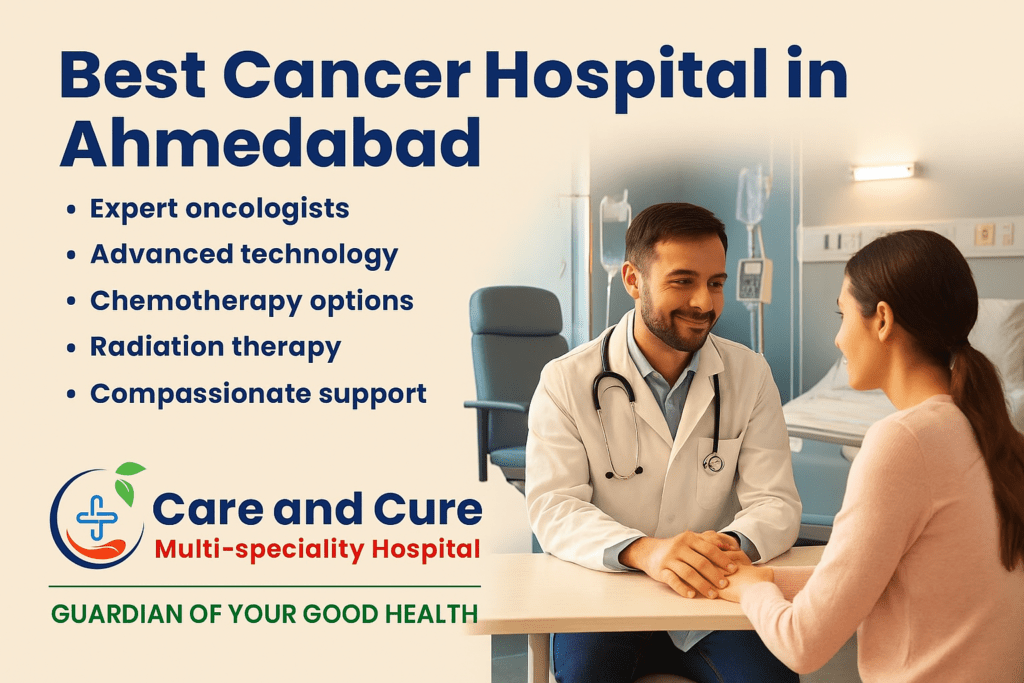
Understanding Cancer and Its Treatment
Cancer begins when abnormal cells in the body grow uncontrollably and spread. It can affect any part of the body, including the breast, lungs, prostate, liver, cervix, and colon.
Early detection, precise diagnosis, and timely treatment can make a huge difference in survival and quality of life. That’s where Care and Cure Multispeciality Hospital excels—with its multidisciplinary approach, advanced diagnostic tools, and compassionate oncology team.
Why Care and Cure is the Best Cancer Hospital in Ahmedabad
At Care and Cure Multispeciality Hospital, we don’t just treat cancer—we care for the person fighting it. Our oncology department integrates medical, surgical, and radiation oncology, ensuring that each patient gets a comprehensive treatment plan tailored to their condition.
Here’s why thousands of patients trust Care and Cure as Ahmedabad’s best cancer hospital:
1. Expert Oncologists and Surgeons
Cancer treatment requires experience and precision. The hospital’s team of highly qualified oncologists, surgeons, radiologists, and pathologists work together to create the most effective treatment strategy.
Each case is reviewed by a tumor board, ensuring that every patient benefits from the collective expertise of multiple specialists. This collaborative approach minimizes errors and improves success rates.
2. State-of-the-Art Technology
At Care and Cure, we utilize advanced cancer treatment technologies, including:
High-end diagnostic imaging: CT, MRI, PET-CT scans
Modern radiation therapy systems: ensuring precision targeting of tumors
Laparoscopic and robotic-assisted cancer surgeries for minimal pain and faster recovery
Day-care chemotherapy units with comfortable surroundings
By combining innovation and accuracy, the hospital ensures that patients receive world-class cancer care without needing to travel outside Ahmedabad.
3. Comprehensive Cancer Care Under One Roof
The hospital offers all major cancer treatment modalities, including:
Medical Oncology: Chemotherapy, targeted therapy, and immunotherapy
Surgical Oncology: Cancer surgeries with minimally invasive techniques
Radiation Oncology: Advanced radiotherapy with modern machines
Palliative Care: Pain management and emotional support for terminal cases
Rehabilitation and Nutrition: Supportive care to enhance quality of life
Care and Cure is not just about curing—it’s about caring through every step of the journey.
4. Early Diagnosis and Screening Programs
Early detection saves lives. Care and Cure Hospital runs cancer screening programs for breast, cervical, lung, and prostate cancers. With advanced imaging, pathology, and biopsy tools, patients can get accurate diagnoses quickly.
Regular screening helps detect cancer in its earliest stages, making treatment easier and more effective.
5. Holistic and Personalized Treatment Plans
No two cancers—and no two patients—are the same. That’s why Care and Cure’s oncology department designs customized treatment plans based on:
Cancer type and stage
Patient’s age and health condition
Genetic and molecular profiles
Doctors take time to explain every step to patients and their families, ensuring transparency and comfort.
6. Emotional and Psychological Support
Cancer doesn’t only affect the body—it deeply impacts mental health. At Care and Cure, we believe healing begins with hope.
The hospital offers:
Counseling sessions for patients and families
Support groups where survivors share experiences
Relaxation therapies to reduce anxiety and fear
This compassionate environment makes Care and Cure not just a medical center, but a healing home.
7. Affordable and Transparent Care
Cancer treatment can be expensive, but Care and Cure Hospital ensures cost transparency and accessibility. The hospital provides:
Affordable chemotherapy and radiation packages
Cashless and insurance facilities
Financial counseling for patients and families
Every patient deserves a fair chance at recovery—regardless of financial background—and Care and Cure stands by that principle.
Types of Cancers Treated at Care and Cure Hospital
The oncology department treats a wide range of cancers, including:
Breast Cancer
Cervical Cancer
Ovarian and Uterine Cancer
Lung Cancer
Prostate Cancer
Head & Neck Cancer
Gastrointestinal Cancers (Liver, Colon, Pancreas)
Blood Cancers (Leukemia, Lymphoma)
Bone and Soft Tissue Cancers
Each cancer type has a dedicated treatment protocol designed by expert oncologists.
Life After Cancer – Rehabilitation & Follow-Up
At Care and Cure Multispeciality Hospital Ahmedabad, treatment doesn’t end with the last chemotherapy session. The hospital provides post-treatment care including:
Nutritional guidance
Physical therapy for strength recovery
Counseling for emotional wellness
Long-term follow-up programs to detect recurrence early
Our goal is to help survivors live healthy, confident, and fulfilling lives after cancer.
Patient Stories
“When I was diagnosed with breast cancer, I felt lost. Care and Cure’s doctors guided me with patience, explaining every step. Today, I’m cancer-free and living confidently.”
“My father’s lung cancer was treated at Care and Cure. The team’s compassion and care made all the difference. They didn’t just treat him—they gave us hope.”
These stories reflect what makes Care and Cure Hospital the best cancer hospital in Ahmedabad—the commitment to treat every patient like family.
FAQs | Best Cancer Hospital in Ahmedabad
Q1. What makes Care and Cure the best cancer hospital in Ahmedabad?
Care and Cure Multispeciality Hospital is recognized as one of the best cancer hospitals in Ahmedabad because it combines medical excellence, modern infrastructure, and compassionate care. The hospital has a team of highly experienced oncologists, surgeons, and pathologists who work together using evidence-based treatment protocols.
Unlike standalone clinics, Care and Cure offers a comprehensive cancer treatment ecosystem under one roof—including diagnosis, chemotherapy, radiation therapy, surgery, and rehabilitation. Its NABH accreditation ensures adherence to strict safety and quality standards.
Patients also benefit from personalized treatment plans, advanced diagnostic technology like PET-CT and MRI scans, and emotional counseling throughout their cancer journey. The hospital’s commitment to affordability and transparent billing adds another layer of trust and care, making it the first choice for families in Ahmedabad.
Q2. Does Care and Cure offer chemotherapy and radiation therapy?
Yes. Care and Cure Multispeciality Hospital Ahmedabad provides both chemotherapy and radiation therapy administered by trained oncologists and oncology nurses.
The hospital’s day-care chemotherapy unit allows patients to receive treatment in a relaxed, monitored environment and return home the same day. This helps minimize hospital stays while ensuring maximum comfort.
For patients requiring radiation therapy, the hospital uses modern radiation systems that precisely target cancer cells while protecting surrounding healthy tissues. These include image-guided radiation therapy (IGRT) and intensity-modulated radiation therapy (IMRT), both proven to minimize side effects and enhance treatment accuracy.
With experienced oncologists guiding each case, Care and Cure ensures that every cancer patient receives safe, advanced, and individualized care.
Q3. Are cancer treatments at Care and Cure affordable?
Yes, one of the biggest reasons patients consider Care and Cure the best cancer hospital in Ahmedabad is its affordable and transparent pricing. Cancer care can be financially stressful, and the hospital ensures that no patient feels burdened during treatment.
The hospital provides:
Cashless insurance facilities with leading providers
Financial counseling to help patients plan costs
Transparent billing without hidden charges
Customized treatment packages to suit each case
Care and Cure believes that quality cancer care should be accessible to all, regardless of financial background. That’s why patients receive international-quality treatment locally, at a reasonable cost, without compromising on safety or results.
Q4. What are the early signs of cancer I should look for?
Recognizing cancer early can save lives. Some common early warning signs include:
Unexplained weight loss or fatigue
Persistent pain or swelling
Lumps or thickening under the skin
Non-healing ulcers or sores
Abnormal bleeding (coughing blood, blood in stool, etc.)
Sudden changes in moles or skin patches
Difficulty swallowing or changes in bowel habits
At Care and Cure Multispeciality Hospital Ahmedabad, patients can undergo routine cancer screening programs for early detection. These include mammography, Pap smears, PSA tests, lung scans, and full-body cancer check-ups.
If you experience any of these symptoms, timely consultation with an oncologist can lead to early diagnosis and better recovery outcomes. The hospital’s early detection initiative has already helped numerous patients catch cancer at a curable stage.
Q5. Does Care and Cure provide post-cancer care or rehabilitation?
Yes. The journey doesn’t end with treatment—Care and Cure Multispeciality Hospital ensures that every patient receives complete post-cancer care.
The hospital offers:
Nutritional counseling to help patients regain strength
Physical rehabilitation to restore mobility after surgery or chemotherapy
Psychological counseling to help patients manage stress, anxiety, and fear
Long-term follow-ups and recurrence monitoring
Support groups where survivors share experiences and inspire others
This holistic approach ensures not just survival, but a return to a healthy, confident, and fulfilling life. Care and Cure’s rehabilitation programs are designed to bring patients back to normalcy—physically, mentally, and emotionally.
✅ Conclusion
Cancer treatment is not just about medicines—it’s about trust, teamwork, and timely care. At Care and Cure Multispeciality Hospital Ahmedabad, patients receive advanced treatment options, compassionate care, and continuous emotional support.
With world-class oncology facilities, 24/7 medical support, NABH accreditation, and a patient-first philosophy, Care and Cure continues to save lives and spread hope.
If you’re looking for the best cancer hospital in Ahmedabad, Care and Cure stands as a symbol of healing, courage, and commitment—where every life is valued and every story matters.

